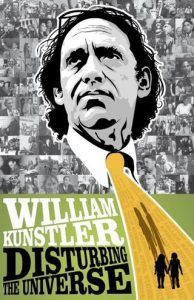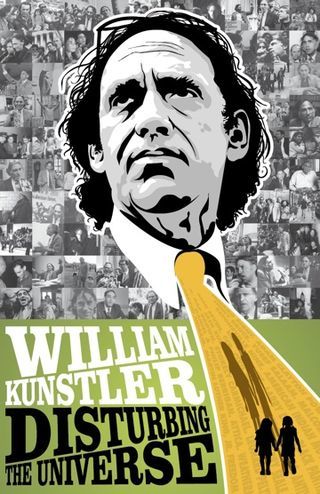 Last November in a post at Legal Blog Watch, I wrote about the theatrical release of the film, William Kunstler: Disturbing the Universe. I was not able to see the film then, but I have seen it now, thanks to its recent release on DVD. I’m no film critic, but I highly recommend it, not only for its fascinating portrayal of the man the New York Times once called, “The most hated and most loved lawyer in America,” but also for its intimate look of the toll a high-profile legal career can take on a lawyer’s family and loved ones.
Last November in a post at Legal Blog Watch, I wrote about the theatrical release of the film, William Kunstler: Disturbing the Universe. I was not able to see the film then, but I have seen it now, thanks to its recent release on DVD. I’m no film critic, but I highly recommend it, not only for its fascinating portrayal of the man the New York Times once called, “The most hated and most loved lawyer in America,” but also for its intimate look of the toll a high-profile legal career can take on a lawyer’s family and loved ones.
In the 1960s and 1970s, Kunstler was at the forefront of the civil rights movement and radical politics. He defended the Freedom Riders in Mississippi in 1961, the Chicago Eight after the 1968 Democratic National Convention, American Indian Movement leaders Russell Means and Dennis Banks after Wounded Knee in 1973, and Attica Prison inmate John Hill in 1974, accused of killing a guard during the riot there.
But in his later career, before his death in 1995, he took on clients who didn’t seem to fit with activist image — an Islamic fundamentalist charged with murdering a rabbi, a terrorist accused of bombing the World Trade Center, a teenager charged with participating in a near-fatal gang rape, and members of the Gambino organized crime family. These later clients made Kunstler “more visible, more venerated, more vilified than ever,” legal journalist David Margolick wrote in the New York Times in 1993.
What makes this film at once so remarkable and so intimate is that it was made by Kunstler’s daughters, Emily and Sarah. Born when their famous father was almost 60, they saw him as a paradox, they now say. In their younger years, he seemed to stand “at the center of everything important that had ever happened.” But by their teens, he seemed to them to have “stopped standing for anything worth fighting for.”
This film is their attempt to both tell his story and sort out this paradox. Along the way, they tell something of their own stories, as well. Where other kids were afraid of monsters under their beds, Emily and Sarah were afraid of the FBI and the police. It is a telling detail of the impact Kunstler’s activism had on his family.
The DVD includes bonus features not part of the film, including footage or audio from the Chicago Eight trial, Wounded Knee and Attica; Kunstler family home movies; and a stand-up routine Kunstler did at Caroline’s Comedy Club in New York City. You can buy it from the official site for $25. Also on sale there are the movie poster and autographed versions of both the DVD and the poster.
 Robert Ambrogi Blog
Robert Ambrogi Blog